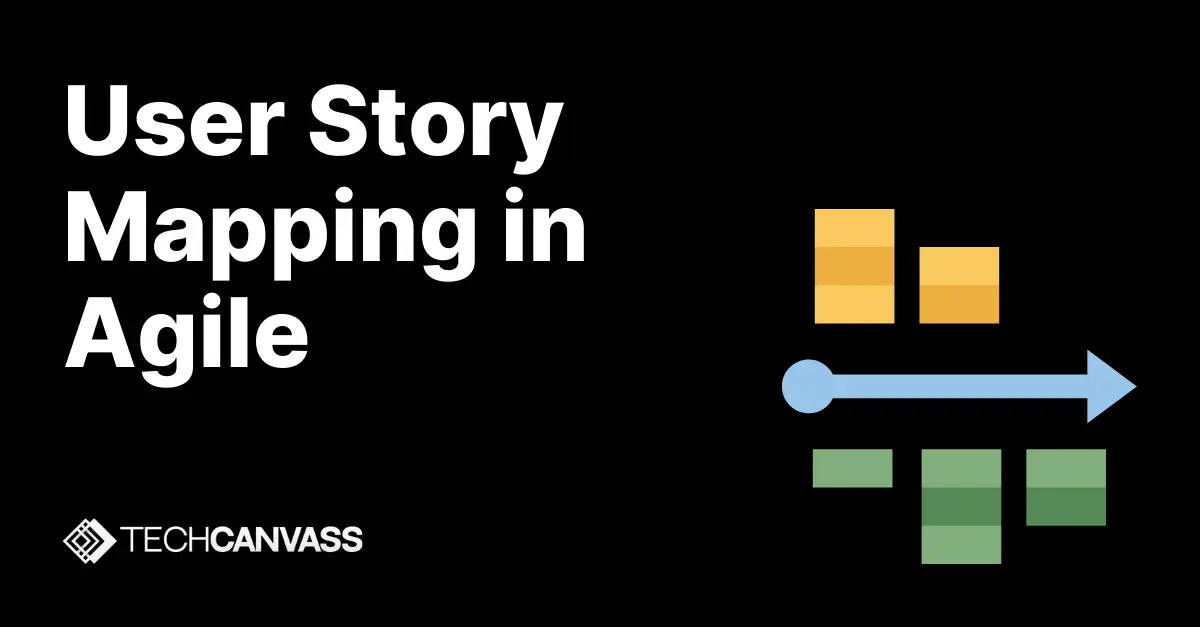Are you still struggling with story mapping in agile? Do you find it challenging to understand the complexities surrounding it?
Let’s simplify the Story Mapping exercise for one and all.
Story mapping in agile is a visualization technique used in Agile project management to create a shared understanding of the project scope and requirements. It’s a collaborative approach that enables cross-functional teams to define and prioritize work in a user-centric manner.
Steps Involved in Story Mapping
Multiple steps are involved while doing the mapping exercise. Here’s a breakdown:
Step 1: Define user personas
Step 2: Discover user goals
Step 3: Map the user journey
Step 4: Write user stories
Step 5: Prioritize your backlog
Step 6: Slice out the MVP
Story Mapping in Agile: A Treasure Hunt for User Understanding
We’re setting out on a mission today to solve the fascinating riddle of user narrative mapping. Let’s make it simpler with some examples.
Imagine story mapping in agile as a treasure hunt across the Agile universe, where each hint leads us closer to a deeper understanding of how to create incredible things that people will love.
Useful Links – Agile Analysis Certification | What is the Role of an Agile Business Analyst?
User Narrative Mapping: Your Magical Roadmap
Consider yourself organizing an amazing adventure: a mission to create something remarkable that will improve people’s lives. Prior to embarking on your journey, you must have a map—a unique sort of map that will lead you through the turns and turns of your undertaking. User narrative mapping can be useful in this situation!
Creating a user narrative map for your project through story mapping in agile is like crafting a magical roadmap. Rather than just marking typical landmarks and destinations, it helps you uncover the wants, aspirations, and goals of your product’s target audience. It’s like finding hidden gems that guide you toward truly remarkable creations.
From Storybook to Constellation: Organizing User Stories
Alright, let’s dissect it even further. Consider your project as a storybook, with user stories—brief summaries of what your users need and want—on each page. However, your project needs structure, just as a storybook is more than just a collection of pages.
Arranging these stories in a logical sequence with story mapping in agile is like assembling a puzzle to reveal the bigger picture. This is where things get truly exciting! User story maps aren’t just about organizing individual tales; they’re about understanding how each piece contributes to delivering an exceptional experience for your users. It’s like connecting stars to form a breathtaking constellation in the night sky.
Exploring the Forest of User Narratives
Let’s exercise even more imagination! Imagine that your user story map is a wonderful forest, with each tree representing a user narrative and the routes connecting them illuminating the connections between them. You’ll find insights that will assist you in developing a product that makes your consumers happy as you meander through the woodland and uncover hidden treasures.
Like any expedition, there can be challenges along the way. With story mapping in agile, you might encounter tricky puzzles or unexpected obstacles. This is where user story mapping shines, helping you navigate the jungle, overcome hurdles, and find the path to success.
Conclusion
Let’s conclude by recognizing the value of story mapping in agile as you embark on your Agile journey. Use it as a trusted guide to navigate the vast world of product development. Who knows what wonders you may discover along the way? Happy mapping, and may magic and joy accompany you throughout your journey!
Ready to take your Agile skills to the next level? Earn your IIBA Agile Analysis Certification with Techcanvass’s comprehensive training program!



